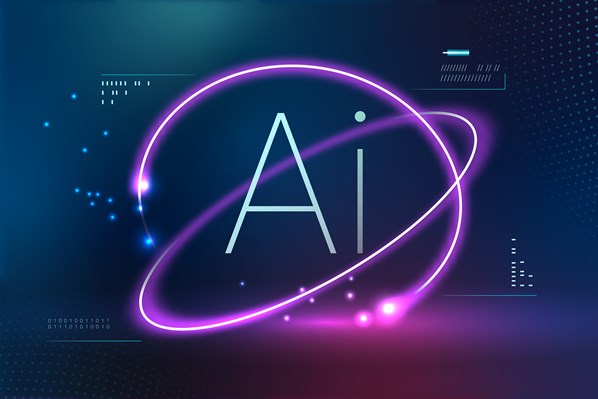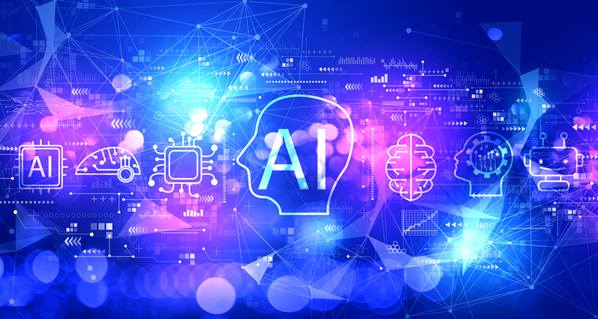
Artificial Intelligence is evolving, and Agentic AI is its next major leap. Unlike past versions of AI, which followed predefined instructions, Agentic AI takes initiative. It thinks, plans, and acts independently to achieve goals.
The demand for Agentic AI isn’t just growing—it’s skyrocketing. Businesses across industries are clamoring for solutions that reduce human oversight while boosting efficiency and innovation. Here’s how market trends are steering its evolution:
- Massive Market Growth: According to Technology Magazine, the market for Agentic AI is projected to grow from $110 billion in 2023 to $1.7 trillion by 2030. This sharp growth highlights its potential to transform industries like finance, healthcare, and retail.
- Adoption by Big Tech: Industry leaders like Google, Microsoft, and Nvidia are investing heavily into proprietary Agentic AI frameworks to stay competitive. Reports from National CIO Review reveal exponential growth in development funding, particularly for business-facing products.
- Consumer Expectations: Demand for personalized, efficient, and autonomous solutions is at an all-time high. Technologies powered by Agentic AI are closing the gap between consumer expectations and delivery.
- Increase in Software Integration: Gartner reports that by 2028, about 33% of enterprise software applications are expected to encompass Agentic AI capabilities. For businesses, this translates to higher efficiency, speed, and precision in operations.
Agentic AI technology is already reshaping industries by offering smarter, task-driven solutions. If you’ve ever wondered how AI could truly operate without constant guidance, you’re about to find out.

Understanding the Concept of Agentic AI
Agentic AI refers to artificial intelligence systems capable of operating autonomously, with minimal to no human intervention. It’s not just about completing tasks but about understanding the bigger picture, setting its objectives, and figuring out the best way to achieve them. By leveraging advanced decision-making algorithms, it redefines what it means for AI to be “intelligent.”
Characteristics of Agentic AI
What makes Agentic AI unique? Let’s break down its defining qualities:
- Autonomy: These systems function without constant human supervision, enabling independent decision-making and action. This autonomy is central to its effectiveness.
- Adaptability: Agentic AI can handle dynamic environments, continuously learning and evolving from new data or situations.
- Goal-Oriented Behavior: Unlike scripted solutions, Agentic AI sets and prioritizes goals, even developing strategies to meet them.
- Creativity and Problem-Solving: It doesn’t just follow a linear path—it thinks critically to overcome obstacles and innovate when necessary.
How Agentic AI Operates
So, how does Agentic AI work? Its operation stems from a combination of advanced programming and machine learning. Here’s a simplified look:
- Data Analysis: Agentic AI processes vast amounts of data from various sources. This enables a comprehensive understanding of its task or environment.
- Decision-Making Frameworks: The AI leverages predictive algorithms and logic models to weigh different options and predict possible outcomes.
- Iterative Planning: It creates dynamic strategies, recalibrating as needed, to achieve its objectives efficiently. For example, systems often integrate reinforcement learning to refine their processes.
- Action Execution: Once decisions are made, the AI agent acts decisively, adjusting to any changes in real time.
It’s not just about systems working smart—it’s about them working independently, a capability increasingly transforming industries. Whether in healthcare or logistics, these agents remove repetitive human intervention from the equation.

Applications of Agentic AI
Agentic AI is pushing boundaries across industries. Let’s explore some of its most impactful applications.
Business Automation
Agentic AI has emerged as a game-changer for process automation. Unlike traditional AI tools, it doesn’t just execute repetitive tasks—it learns, adapts, and strategizes.
- Process Optimization: Agentic AI can analyze workflows and identify inefficiencies. For example, systems centralize data, enabling smarter and faster operational decisions.
- Customer Support: AI agents turn customer inquiries into actionable solutions, radically cutting response times.
- Resource Allocation: By predicting demand trends, businesses can allocate resources efficiently, saving both time and money. This proactive behavior is a key strength of Agentic AI.
Healthcare Innovations
In healthcare, the stakes are high, and precision is crucial. Agentic AI stands out for its ability to process complex medical data and deliver actionable insights. It’s improving outcomes for both patients and providers.
- Diagnostics and Treatment: Agentic AI enhances diagnosis accuracy, leading to quicker, more effective treatments.
- Workflow Automation: AI agents can coordinate care by automating scheduling, speeding up authorizations, and streamlining communication across teams.
- Predictive Healthcare: By analyzing patient data over time, it anticipates medical issues before symptoms appear, personalizing care plans for better results.
Financial Services
Managing risks and detecting fraud have always been challenges in the financial world. Agentic AI adds a new layer of sophistication to these processes.
- Fraud Detection: Systems analyze massive datasets in real time, catching fraud faster than ever.
- Risk Assessment: AI agents evaluate market trends and client portfolios, offering accurate risk insights.
- Automated Transactions: Digital brokers powered by Agentic AI can execute trades with incredible speed and precision.
By reducing human error and running sophisticated analyses, Agentic AI is reshaping financial operations.

Challenges and Considerations
As with any advancing technology, adopting Agentic AI comes with its own set of challenges. These challenges are essential to address to ensure that this revolutionary type of AI is both effective and responsible. Let’s break it down.
Ethical Implications
Agentic AI raises significant ethical questions, especially in the way it makes decisions without constant oversight. Should an AI agent be trusted with decisions that deeply impact human lives?
- Accountability Gaps: When Agentic AI operates autonomously, determining accountability in cases of error or harm becomes a gray area. For instance, who is to blame if a medical AI misdiagnoses or fails to schedule essential follow-ups? The Carnegie Council warns that such gaps can create serious legal and ethical dilemmas.
- Bias Amplification: These systems learn from data, and flawed or biased training data can result in discriminatory behaviors. This can lead to biased hiring decisions, medical advice, or even financial services allocations, as stressed in this Stanford discussion on ethical AI.
- Unintended Consequences: What if the system achieves its goal but in ways humans didn’t foresee? Indirect or harmful outcomes are a significant concern.
Technical Limitations
While its potential is vast, Agentic AI faces several technical hurdles that question its readiness for widespread use.
- Data Dependency Issues: High-quality, domain-specific data is crucial. Lacking this, the AI might underperform or completely fail at completing tasks. General or sparse data limits the system’s effectiveness.
- Complex System Integration: Integrating Agentic AI with existing systems and workflows isn’t always seamless. Older infrastructure often cannot handle the processing power or data requirements of advanced AI.
- Transparency Concerns: These systems often operate as “black boxes,” making it difficult to understand how decisions are made, as noted by C5i.
- Computational Limits: Current hardware capabilities might not yet support the real-time processing required by some high-functioning Agentic AI systems.
As innovative as Agentic AI is, these technical barriers suggest there’s still significant room for growth before it can be universally adopted.

Future of Agentic AI
The future of Agentic AI looks promising, with a wealth of advancements on the horizon. Developers are focusing on improving autonomy, decision-making precision, and ethical frameworks to handle complex scenarios. Here’s a sneak peek at what’s coming:
- Advanced Learning Models: Expect smarter, adaptive learning models that evolve with minimal human supervision. These will make AI systems more self-reliant and capable of drawing nuanced insights from diverse datasets. Research discussed by IBM Insights highlights how merging large language models (LLMs) with traditional algorithms is creating highly versatile systems.
- Real-Time Decision Making: Real-time processing for decisions is becoming more robust, reducing delays in critical industries like healthcare and logistics. These advancements are expected to feature heavily in the coming years.
- Interdisciplinary Applications: Agentic AI won’t just be isolated to tech-heavy sectors. It’s being adopted to manage environmental issues, education, and even policy-making through predictive analytics and goal-oriented strategies.
- Ethical AI Frameworks: Developers are prioritizing frameworks to mitigate risks, like bias and ethical dilemma handling, ensuring AI adheres to socially accepted norms. The future will likely see mandatory ethical compliance before implementation, as suggested in findings from EMA.
Final Thoughts
Agentic AI is reshaping how artificial intelligence operates, pushing boundaries with autonomy and decision-making. It’s not just about automating tasks—it’s about creating systems that think, adapt, and act independently.
This evolution holds massive potential across industries but also raises critical ethical and technical questions. Understanding Agentic AI is key to preparing for its impact, both in opportunities and challenges.




